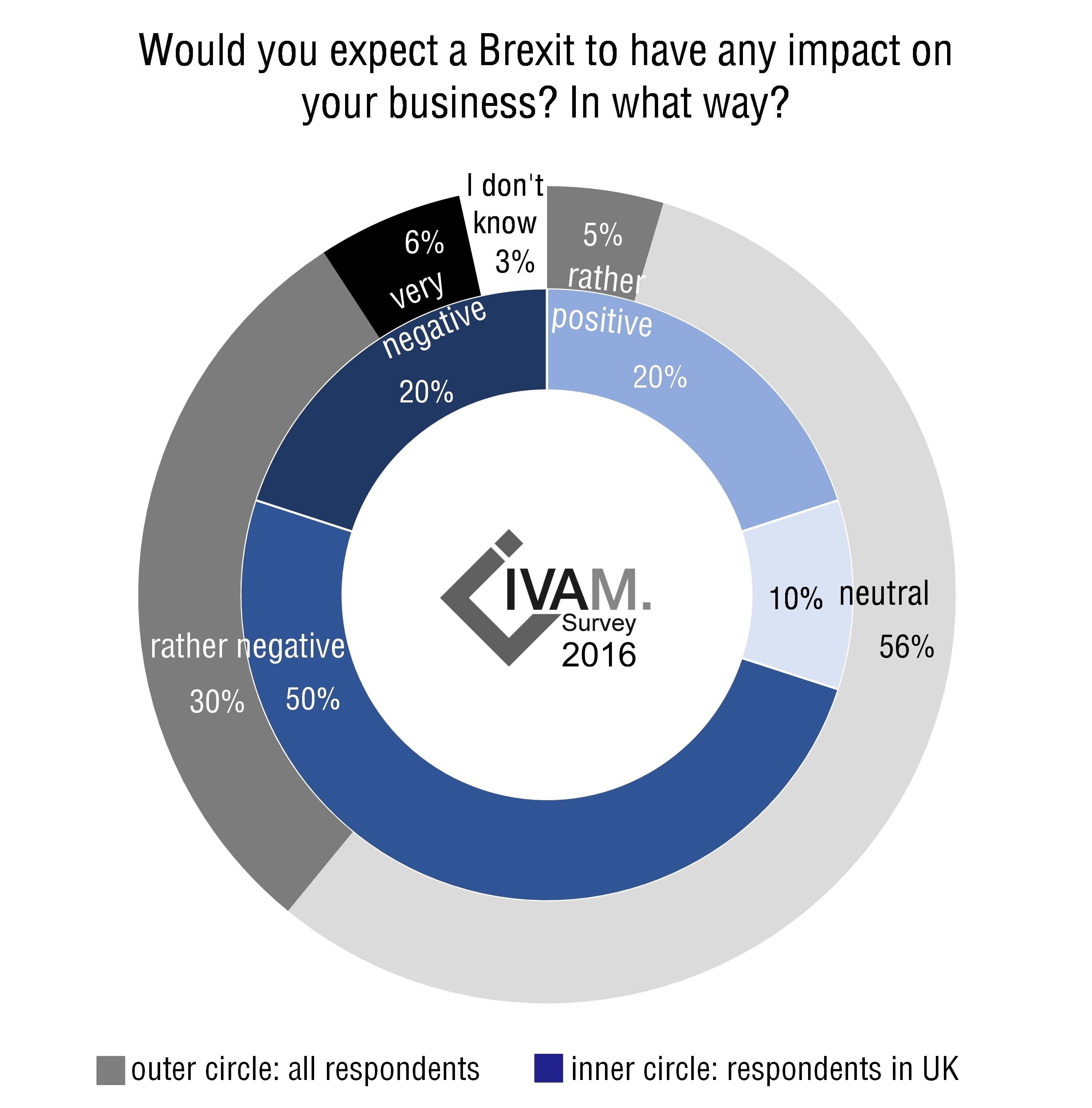Britain's research-intensive high-tech industry fears the "Brexit". A majority of micro- and nanotechnology companies and research institutes in the UK predicts that an exit of their country from the European Union would have a negative impact on their business or research performance. As part of its annual economic data survey, the IVAM Microtechnology Network has asked companies and research institutions in the research-intensive micro and nanotechnology industry in Europe what impact the possible withdrawal of Britain from the European Union might have on their business and on the high-tech industry in general.
The industry representatives in Britain are worried primarily about their innovative capacity and international collaboration. A “Brexit” would restrict research activities of research institutions and innovative small and medium-sized enterprises. Cooperation with partners outside the UK would have to be renegotiated and the financing of joint projects would be uncertain on both sides.
For high-tech companies in other European countries, the UK is often not a critical market. Therefore they are less worried about the possible disengagement of Britain from the EU. Even so, more than a third of European respondents expect a negative impact on their business or research performance.
While industry representatives in Europe are convinced that a “Brexit” would put above all the British industry at a disadvantage, the British more often think that the rest of the EU would suffer in a “Brexit” scenario as well. For instance, a majority of British respondents predict a negative impact on the growth of the high-tech industry in the EU, on trade within the EU, on international collaboration within an EU without the UK, and on the international competitiveness of the continental European industry.
Economic and financial experts have been warning against a withdrawal of Britain from the European internal market for a long time: a “Brexit”, they say, would slow down the economic growth in the UK and in the EU and make necessary protracted renegotiations of trade relations. Numerous trade agreements that the EU has reached would no longer be valid for the UK.
The high-tech companies in Europe expect that as a non-EU member Britain would have difficulties negotiating trade agreements. More than half (59%) of all respondents think the chances of the country to negotiate advantageous trade agreements with the EU are low. Britain’s chances to achieve advantageous trade agreements outside the EU might be better because of the country’s membership in the Commonwealth and its strong ties to the United States.
The representatives of the European microtechnology industry express concern that a “Brexit” would strengthen anti-European sentiments and other EU countries might follow the example of Great Britain. The exit of Britain alone would probably not induce the end of the EU, but combined with the desire for special agreements of other member states and the national-based policies in some Eastern European member states it would certainly increase the risk of disintegration of the EU. Domestic political consequences for the UK would be possible, too, because Scotland might make another attempt to become independent from the United Kingdom in order to join the European Union.


